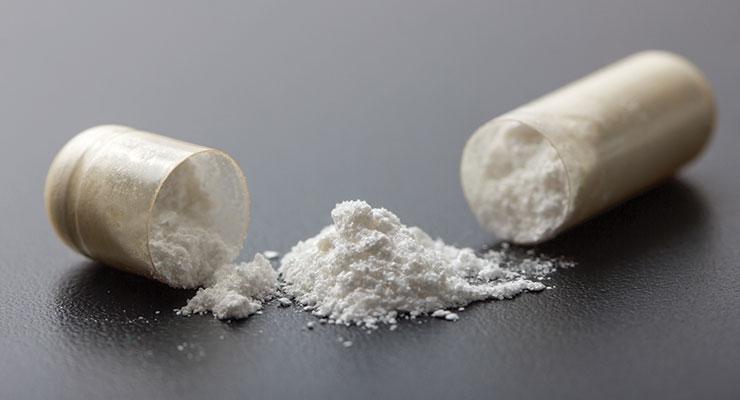Manufacturer of Dry Srup in India

The pharmaceutical industry in India is evolving rapidly, with increasing demand for high-quality, safe, and effective medicines. Among the various pharmaceutical products, dry syrups have become highly popular due to their ease of administration, longer shelf life, and suitability for pediatric use. Dry syrups are formulations that remain in powder form until reconstitution with water, allowing precise dosing, improved stability, and enhanced patient compliance.
VTV Formulations, a leading dry syrup manufacturer in India, has emerged as a trusted partner for pharmaceutical companies seeking high-quality third-party manufacturing services. Founded with a mission to provide affordable, safe, and effective medicines, VTV Formulations operates WHO-GMP certified facilities and offers a comprehensive range of dry syrup products. By combining advanced manufacturing technology, expert quality control teams, and a focus on regulatory compliance, VTV Formulations ensures that clients receive superior products that meet both domestic and international standards.
With a robust R&D department, skilled production staff, and modern cleanroom facilities, VTV Formulations is equipped to handle everything from small pilot batches to large-scale manufacturing. Collaborating with VTV Formulations allows pharmaceutical businesses to reduce infrastructure costs, save on equipment investment, and expedite time-to-market while maintaining high-quality standards.

Manufacturing of High-Quality Dry Syrups
The production of dry syrups is a complex process that demands precision, expertise, and adherence to stringent quality standards. VTV Formulations specializes in producing dry syrups for a variety of therapeutic categories including antibiotics, analgesics, anti-allergic medications, anti-infectives, steroids, and pharmacological combinations.
Each stage of production is meticulously monitored to ensure that the final product is safe, effective, and stable. The process begins with selection of high-quality raw materials, followed by blending, granulation, drying, and filling. State-of-the-art machinery ensures uniformity and consistency in every batch, while cleanroom environments reduce the risk of microbial contamination.
Key factors that make VTV Formulations the preferred dry syrup manufacturer include:
- International Recognition – Products manufactured adhere to global standards, ensuring access to international markets.
- Cutting-Edge Technology – Advanced machinery and automated systems ensure accuracy and batch-to-batch consistency.
- Scalability – Facilities can handle small pilot batches or large-scale production efficiently.
- Cost-Effective Manufacturing – Optimized processes reduce operational costs while maintaining high product quality.
- Operational Support – VTV Formulations provides packaging, delivery, and supply chain solutions, offering end-to-end support for clients.
By choosing a partner like VTV Formulations, pharmaceutical companies can focus on brand expansion and market growth, leaving the complexities of production and quality management to experts.
Standards and Best Practices in Third-Party Dry Syrup Manufacturing
Ensuring Quality and Compliance
Maintaining consistent quality and compliance is a cornerstone of dry syrup manufacturing. At VTV Formulations, every stage of production is carefully monitored to ensure that the final product meets the highest standards. Dry syrups are complex formulations that involve multiple ingredients, each requiring careful handling, precise measurements, and validation for stability and potency. Even minor deviations in the process can affect the safety, efficacy, or shelf life of the product. Therefore, implementing strict standard operating procedures, robust quality control systems, and rigorous testing protocols is crucial.
Furthermore, regulatory compliance plays a significant role in manufacturing. VTV Formulations ensures that all processes adhere to WHO-GMP, ISO, and local regulatory guidelines, which not only guarantees product quality but also facilitates international market access. Our quality assurance teams conduct continuous inspections, in-process monitoring, and final batch testing to ensure that every product delivered to clients is consistent and reliable. By combining advanced technology with human expertise, VTV Formulations maintains high standards of safety, efficacy, and regulatory adherence, which is critical in building trust with healthcare providers and end-users.
Critical Points in Manufacturing
To maintain the highest standards and operational efficiency, VTV Formulations focuses on the following key aspects:
- International Recognition – Products and practices meet global safety and quality standards, enabling clients to confidently access both domestic and international markets.
- Cutting-Edge Technology – Automated systems, precision machinery, and cleanroom facilities ensure minimal human error, accurate formulations, and consistent quality.
- Cost-Effective Production – Efficient resource management reduces wastage and operational costs, enabling clients to expand their business profitably.
- Operational Support – Services such as on-time delivery, inventory management, and packaging assistance ensure smooth business operations.
- R&D Collaboration – Continuous innovation in formulations, flavors, and dosage forms keeps products competitive in the market.
- Total Quality Management (TQM) – TQM ensures quality control at every stage of production, minimizing risks and enhancing reliability.
- Staff Training and Development – Ongoing training ensures teams stay updated on the latest manufacturing techniques, compliance standards, and safety protocols.
- Auditing and Compliance Checks – Internal and external audits guarantee that all manufacturing practices are fully compliant with regulatory standards.
- Sustainability Practices – Efficient use of energy and environmentally friendly practices ensure responsible manufacturing.
- Customized Solutions – Tailored production and packaging solutions meet unique client needs, whether for pilot batches, bulk manufacturing, or specialized formulations.
Through these practices, VTV Formulations ensures that every dry syrup batch is safe, effective, and market-ready, reinforcing its position as a trusted third-party manufacturer in India.
Conclusion and Key Takeaways
Dry syrup manufacturing in India is witnessing significant growth due to the increasing demand for safe, effective, and patient-friendly medicines. VTV Formulations has established itself as a leading manufacturer of dry syrups, combining advanced technology, regulatory compliance, and a strong focus on quality.
Partnering with VTV Formulations provides pharmaceutical companies with numerous advantages. Cost savings are achieved by avoiding heavy investments in equipment and infrastructure, while regulatory compliance ensures global market access. Flexible and scalable production allows businesses to handle both pilot and large-scale batches efficiently. Confidentiality and IP protection safeguard proprietary formulations and business strategies. Additionally, ready infrastructure enables faster time-to-market, rigorous quality assurance guarantees safety and stability, and access to advanced technology strengthens market competitiveness.
Key Advantages of Partnering with VTV Formulations
- Cost Savings – Reduce heavy investments in equipment, infrastructure, and trained personnel.
- Regulatory Compliance – WHO-GMP adherence ensures products meet international standards.
- Efficient Production – Flexible volumes support both pilot and large-scale manufacturing.
- Confidentiality – Proprietary formulations and business strategies are protected.
- Faster Time-to-Market – Ready infrastructure allows quicker product availability.
- Quality Assurance – Rigorous testing ensures safe, effective, and stable medications.
- Market Competitiveness – Advanced technology and expertise strengthen brand presence.
With these advantages, pharmaceutical companies can enhance operational efficiency, expand domestic and international reach, and ensure patient access to high-quality medicines. VTV Formulations stands as a trusted partner, helping businesses thrive in an increasingly competitive healthcare market. Continuous innovation, strict quality control, and dedication to patient care make VTV Formulations a pioneering force in dry syrup manufacturing in India, delivering sustainable, reliable, and high-quality solutions to pharmaceutical companies and the patients they serve.
Explore Related Blogs
Stay informed with our curated selection of similar blogs, offering expert perspectives on pharmaceutical trends, regulatory updates, and product innovations.
These articles are designed to help healthcare professionals, partners, and businesses stay ahead in an ever-evolving industry. Explore more to deepen your knowledge and make informed decisions.